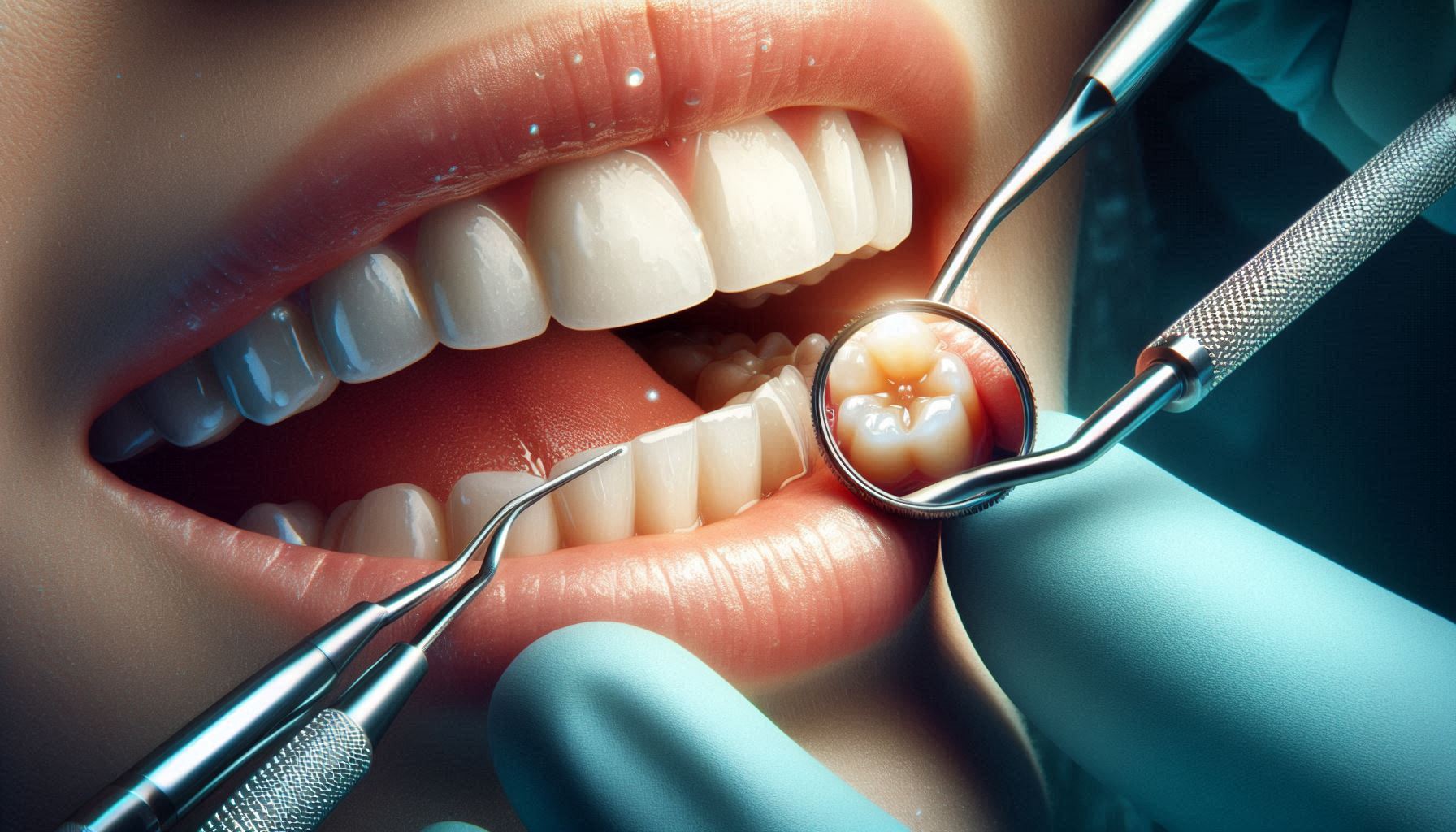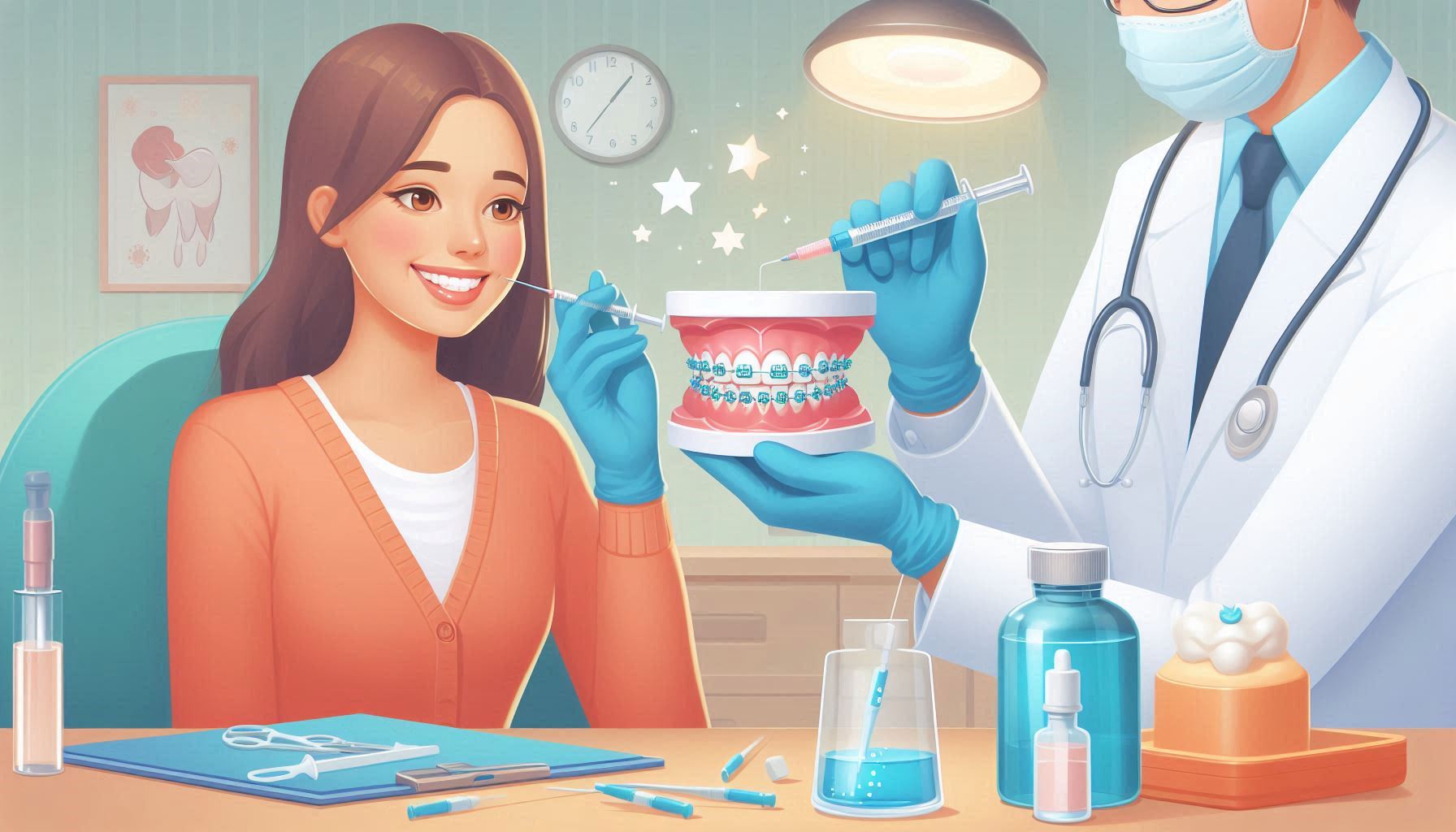Introduction
Oral hygiene is typically associated with preventing tooth decay, gum disease, and bad breath, but it’s far more impactful than that. Research and clinical studies have increasingly demonstrated that the state of your oral health has wide-ranging effects not only on your physical well-being but also on your emotional state and mental clarity. We often think of oral hygiene as something isolated to the mouth, but the reality is that a clean mouth can elevate how we feel in several aspects of life. From reducing stress to boosting confidence, oral health is tied to a more energetic and positive mindset.
The key to understanding how oral hygiene can energize us and promote positivity lies in recognizing that the mouth is often a reflection of our broader health. It is a well-known fact that many systemic diseases can be linked to poor oral health, and the converse is also true: good oral care often correlates with fewer health issues and, by extension, more vitality. In this article, we will explore the multifaceted role oral hygiene plays in helping you feel better, more confident, and more energized every day.
The Science Behind Oral Health and Overall Health
Oral hygiene is about more than just brushing and flossing—it’s about protecting your body from harmful bacteria, inflammation, and other health risks that can emerge when oral care is neglected. Let’s delve deeper into the science behind how oral health directly impacts your physical and systemic health.
- Systemic Inflammation: One of the most significant and far-reaching effects of poor oral hygiene is the development of systemic inflammation. Infections in the mouth, particularly gum disease, can lead to chronic inflammation that travels through the bloodstream. Studies have found that this inflammation can exacerbate or even contribute to chronic conditions such as heart disease, diabetes, stroke, and even rheumatoid arthritis. The more we learn about inflammation, the more we understand that it’s not just confined to one part of the body; it spreads, affecting organs and systems far from the original site. By keeping inflammation under control with proper oral hygiene, you’re essentially reducing the risk of these health complications.
- The Mouth-Body Connection: The mouth is full of bacteria, both good and bad. When oral hygiene is poor, the balance of these bacteria can tip in favor of harmful pathogens that may travel from the mouth into the bloodstream. Gum disease, for example, has been shown to raise the risk of cardiovascular problems. The bacteria from the mouth can enter the bloodstream through the gums and travel to the heart, leading to inflammation of the blood vessels, which can contribute to heart disease and stroke. Research also links gum disease to respiratory conditions like pneumonia, as bacteria can be inhaled into the lungs, worsening respiratory function.
- Oral Health and Diabetes: One of the most important and overlooked connections is between oral health and diabetes. Poor oral hygiene increases the risk of developing gum disease, which in turn may make it harder to control blood sugar levels. This is due to the inflammation caused by gum disease, which affects the body’s insulin sensitivity. In fact, those with diabetes are more susceptible to oral health issues like gum disease, and conversely, individuals with untreated gum disease are at a higher risk of developing diabetes. Proper oral hygiene, therefore, not only reduces the risk of gum disease but also helps manage blood sugar levels, contributing to better overall health.
The Psychological Benefits of a Healthy Smile
One of the most immediate and powerful impacts of oral hygiene is on your self-esteem and mental state. The way your teeth look and feel can dramatically affect how you perceive yourself and how others perceive you. A healthy mouth leads to greater self-confidence, which, in turn, impacts your overall mood and well-being.
- Confidence and Self-Esteem: Our smiles are one of the first things we use to communicate non-verbally with others. Whether it’s a big, beaming smile or a small, shy grin, the state of our teeth plays a crucial role in how we interact with the world. People who feel insecure about their teeth—whether due to yellowing, bad breath, or crookedness—are less likely to smile freely. This can create a cycle of self-consciousness, where the individual feels less confident and socially isolated. Conversely, people with healthy teeth and gums tend to smile more often, which enhances their self-esteem. A brighter, healthier smile can increase feelings of attractiveness and competence, leading to a better mood and overall improved confidence.
- Social Perception: Studies show that the condition of your smile affects how others view you. People with clean, healthy teeth are often perceived as more confident, approachable, and even more intelligent. Positive perceptions from others can enhance social interactions, professional relationships, and social status. This is especially true in work environments where appearance can impact hiring decisions, promotions, and overall career advancement. Smiling can also serve as a social signal of warmth and kindness, encouraging positive interactions and stronger relationships with others.
- The Role of Smiling in Mental Health: The act of smiling, even if it feels forced initially, can positively influence your mental state. The facial feedback hypothesis suggests that facial expressions not only reflect emotional states but also play a role in influencing them. When you smile, your brain releases neurochemicals such as endorphins and serotonin, which are linked to feelings of happiness and relaxation. This can reduce stress, improve mood, and boost overall positivity. Smiling can even lower heart rate and blood pressure, promoting relaxation and reducing anxiety. By practicing good oral hygiene and taking care of your smile, you are investing in a smile that naturally invites joy, both for you and those around you.
Oral Hygiene and Energy Levels
Your energy levels are directly linked to your overall health, and oral hygiene plays a crucial role in how energetic you feel throughout the day. Let’s explore how keeping your mouth healthy can help you feel more energized and prevent factors that drain your vitality.
- Bacterial Load and Fatigue: A buildup of harmful bacteria in the mouth can contribute to systemic infections that wear down the body and cause fatigue. When gum disease or tooth infections occur, the immune system responds by activating inflammatory pathways that drain energy. This chronic low-grade inflammation can lead to feelings of sluggishness and fatigue. Conversely, maintaining good oral hygiene helps prevent the growth of harmful bacteria, reducing inflammation and boosting overall energy levels.
- Sleep Quality: Did you know that poor oral health can disrupt your sleep? Issues like toothaches, gum disease, or even bad breath can cause discomfort that makes it difficult to rest properly. Sleep is critical for energy restoration, and any disruption can leave you feeling groggy and fatigued the next day. Good oral hygiene, including brushing and flossing before bed, can reduce the risk of oral health problems that may affect sleep quality, such as teeth grinding, gum inflammation, or tooth decay. With better sleep, you’re naturally more likely to wake up feeling energized and ready to tackle the day.
- Reduced Stress and Increased Vitality: Chronic oral health issues, such as gum disease, can lead to elevated stress levels. Pain, discomfort, and constant worry about bad breath or unsightly teeth can affect your emotional state. By taking care of your oral health through proper brushing, flossing, and professional care, you can reduce these stressors. This, in turn, frees up your mental and physical energy to focus on other areas of life. With less stress and fewer distractions, you’ll experience a natural increase in vitality and enthusiasm.
The Cognitive Benefits of Oral Health
A healthy mouth doesn’t just impact your physical well-being—it has a profound effect on your cognitive function and mental clarity. Here’s how maintaining oral hygiene can improve brain health and help you stay sharp.
- Link to Cognitive Decline: A growing body of research suggests that poor oral health is linked to cognitive decline, including conditions like dementia and Alzheimer’s disease. Chronic gum disease has been found to exacerbate the formation of amyloid plaques in the brain, which are a hallmark of Alzheimer’s disease. The inflammation caused by gum disease may also affect the brain’s ability to process and clear toxins, increasing the risk of neurodegenerative diseases. By preventing gum disease and maintaining good oral hygiene, you may reduce the risk of cognitive decline and keep your mind sharp for longer.
- Improved Focus and Mental Clarity: The energy drain caused by oral health issues like tooth pain or gum discomfort can seriously affect your ability to concentrate. Discomfort, whether physical or emotional, is a significant distraction. When you address your oral health needs and eliminate these pain points, your mind becomes clearer and more focused. This improved mental clarity leads to better productivity, more effective problem-solving, and overall enhanced cognitive performance. Healthy teeth also encourage healthy habits, such as maintaining a routine and practicing self-care, which can contribute to a more focused and organized mindset.
Oral Health and Mental Health: The Emotional Impact
The connection between oral health and emotional well-being cannot be overstated. Poor oral hygiene can lead to chronic pain, embarrassment, and frustration, all of which contribute to anxiety and depression. By maintaining oral health, you take control of these issues, which can lead to a better mood and a greater sense of peace.
- Chronic Pain and Anxiety: Toothaches, gum disease, and other oral health issues can cause significant pain and discomfort. Chronic pain can increase feelings of anxiety, irritability, and depression. The longer these issues go untreated, the more they affect your emotional state, creating a vicious cycle of negativity. Regular dental check-ups and good oral care help prevent this cycle, reducing the likelihood of developing chronic pain and enabling you to maintain a more positive outlook.
- Stress Relief and Relaxation: Engaging in regular oral hygiene practices provides a sense of routine and control over your health. This can be incredibly calming, especially in the face of life’s stresses. Knowing that you’re taking steps to protect your health can reduce feelings of helplessness and anxiety. Moreover, brushing your teeth can serve as a mindful moment in your day—a brief pause to focus on your well-being, which can provide a sense of mental relaxation and stress relief.
A Comprehensive Oral Hygiene Routine for a Healthier, More Energized You
A successful oral hygiene routine goes beyond just brushing. By incorporating a comprehensive approach to your oral care, you can enhance both your physical health and emotional state.
- Brushing Properly: Brushing your teeth for at least two minutes, twice a day, is essential. Use fluoride toothpaste to help fight cavities and gum disease. Make sure to brush all surfaces of your teeth, including the back and the gum line, to ensure the removal of all plaque and bacteria.
- Flossing: Flossing once a day removes plaque and food particles between your teeth, where a toothbrush can’t reach. This helps reduce the risk of gum disease and cavities, as well as contributes to fresher breath.
- Using Mouthwash: Mouthwash can help reduce bacteria in the mouth, freshen your breath, and provide added protection against plaque and gingivitis. Use an antimicrobial mouthwash that contains fluoride to maximize its benefits.
- Regular Dental Visits: Regular check-ups with your dentist are crucial for maintaining good oral health. Dentists can identify early signs of gum disease, cavities, and other issues before they become serious problems.
7. The Role of Diet in Oral and Overall Health
A healthy diet is a cornerstone of both good oral hygiene and sustained energy levels. The foods you eat have a profound impact on the health of your teeth and gums, and choosing the right nutrients can play a major role in boosting your overall vitality.
- Foods for Healthy Teeth: Eating nutrient-dense foods supports strong teeth and gums. For instance, foods rich in calcium (such as dairy products, leafy greens, and fortified plant-based milk) help strengthen tooth enamel and bones. Vitamin C, found in citrus fruits, berries, and leafy greens, is vital for gum health and preventing gum disease. Vitamin D helps your body absorb calcium, which is important for maintaining healthy teeth. Magnesium, found in foods like nuts, seeds, and whole grains, also helps support strong tooth structure. These foods ensure your teeth remain healthy and resilient, contributing to overall well-being and a positive, energetic state.
- Avoiding Sugar: Sugar is a primary culprit in the development of cavities. When sugary foods and drinks are consumed, the bacteria in your mouth use the sugar to produce acid, which attacks tooth enamel and leads to decay. By reducing your intake of sugary snacks, drinks, and processed foods, you can significantly lower your risk of cavities and gum disease. Instead, opt for whole foods like fruits, vegetables, and nuts, which not only nourish your body but also support your oral health.
- Hydration and Saliva Production: Hydration is essential for maintaining oral health. Drinking water throughout the day helps keep your mouth moist, encourages saliva production, and washes away food particles and bacteria that can lead to tooth decay and bad breath. Saliva plays a critical role in neutralizing acids in the mouth and preventing the buildup of plaque. Dry mouth, which can occur from dehydration or certain medications, increases the risk of cavities and gum disease. By staying hydrated, you support your oral health while also enhancing your overall energy levels.
- The Impact of Coffee and Alcohol: Many people rely on coffee or sugary sodas for a morning energy boost. However, excessive caffeine and sugar consumption can contribute to dehydration, staining of the teeth, and an imbalance in your oral bacteria. Similarly, alcohol can have a drying effect on the mouth, leading to bad breath and an increased risk of gum disease. Moderation is key to maintaining both oral health and energy levels. For a more positive, energized state, consider drinking water, herbal teas, or unsweetened beverages, which promote hydration and prevent the negative impacts of caffeine and alcohol on your oral and overall health.
How Oral Hygiene Affects Your Daily Life and Productivity
The benefits of maintaining good oral hygiene go beyond just preventing tooth pain or bad breath. When you take care of your mouth, you set the foundation for more productive and enjoyable daily life.
- Morning Routine: The way you start your day has a huge impact on how you feel. Brushing your teeth in the morning is one of the simplest ways to feel refreshed and ready for the day ahead. When you brush your teeth, you remove the bacteria that accumulate overnight, leading to a fresh and clean feeling. A clean mouth can also boost your confidence, making you feel more ready to face the challenges of the day. By incorporating a healthy oral hygiene routine into your morning habits, you create a positive foundation for the rest of your day.
- Confidence at Work and Social Interactions: A healthy smile can positively impact your professional and personal relationships. In work settings, confidence is key to success. Whether you’re in a meeting, presenting, or interacting with colleagues, a clean and healthy mouth enhances your self-assurance and communication. A good first impression starts with a confident smile, and oral hygiene plays a crucial role in this. In social situations, maintaining good oral health allows you to engage comfortably, knowing that bad breath or stained teeth won’t detract from your interactions. This can lead to more positive, fulfilling relationships and greater enjoyment in social activities.
- Focus and Motivation: Oral discomfort—whether caused by cavities, gum disease, or poor breath—can be a major distraction. When you are dealing with oral pain, discomfort, or self-consciousness, it’s difficult to focus on your work or your personal goals. By taking care of your oral health, you eliminate these distractions, which allows you to direct more energy toward your tasks. Improved focus and the reduction of stressors related to oral discomfort enhance your motivation to tackle challenges and achieve your objectives.
- Long-Term Impact on Productivity: People who prioritize oral hygiene often feel healthier and more energized, which translates into better productivity in the long term. By preventing oral health issues like cavities or gum disease, you avoid the time and energy that would be spent on treating these conditions. A good oral care routine helps you stay on track with your daily responsibilities, maintain high energy levels, and ensure that you’re performing at your best, both mentally and physically.
The Long-Term Benefits of Prioritizing Oral Hygiene
Oral hygiene is not just a short-term fix; it is an investment in your long-term health and well-being. By adopting and maintaining a good oral care routine, you can enjoy lasting benefits that extend far beyond your smile.
- Prevention of Major Health Issues: Good oral hygiene is crucial for preventing major oral health issues, such as tooth loss, gum disease, and tooth decay. By brushing and flossing regularly, you reduce your risk of developing these conditions and avoid the need for expensive and painful dental procedures later on. Furthermore, by taking care of your mouth, you reduce the risk of systemic health problems, such as cardiovascular disease, diabetes, and respiratory issues, which can affect your quality of life in the long term.
- A Lifelong Healthier Smile: Maintaining a healthy mouth ensures that your teeth and gums remain in good condition throughout your life. As you age, your smile becomes an important part of your identity. Prioritizing oral hygiene helps preserve your natural teeth, preventing tooth loss and maintaining a youthful appearance. This not only boosts your confidence but also helps you maintain proper chewing function, which supports good nutrition. Additionally, a healthy smile can enhance your appearance, making you look younger and more vibrant, which directly contributes to your emotional well-being and positive outlook on life.
- Improved Self-Esteem Over Time: When you commit to oral hygiene, you’re also committing to taking care of yourself. This can have a profound impact on your self-esteem and how you feel about yourself. Over time, the positive effects of maintaining a clean mouth become more evident, both physically and emotionally. You’ll feel more confident, less stressed, and more energized. This sense of self-care translates into an overall more positive attitude toward life, as you understand the power of taking care of yourself and prioritizing your health.
- Increased Longevity and Quality of Life: The long-term benefits of good oral hygiene go hand-in-hand with an overall healthy lifestyle. As you prevent oral health issues and reduce inflammation and infection, you contribute to the overall longevity of your body. Maintaining a healthy mouth is directly linked to living a longer, healthier life. People who invest in their oral health are often healthier and more energetic throughout their lives, which results in a higher quality of life and a more positive outlook on aging.
Conclusion
Oral hygiene is often overlooked as a contributor to overall well-being, but as we have seen, it plays a pivotal role in shaping our physical and mental health. From boosting self-confidence to improving energy levels and reducing stress, taking care of your teeth and gums can significantly enhance your quality of life.
Maintaining a good oral hygiene routine not only prevents cavities and gum disease, but it also helps keep your body free from inflammation and infections that can drain your vitality. It boosts your confidence and ensures that you feel comfortable engaging in social and professional interactions. More importantly, by committing to oral health, you are investing in long-term health benefits that will keep you feeling vibrant and positive for years to come.
A healthy mouth contributes to a healthy body and a positive mindset. By brushing, flossing, and visiting your dentist regularly, you are taking proactive steps to protect your health, boost your energy, and enhance your overall well-being. So, take pride in your oral hygiene—because the power of a healthy mouth goes far beyond just a beautiful smile. It’s the foundation for a more positive, energized, and fulfilling life.
SOURCES
Albandar, J. M. & Kingman, A. (2002). Gingival disease and systemic conditions: A review. Journal of Clinical Periodontology, 29(3), 33-40.
Bain, C. A. & Sunderland, R. (2007). The effect of oral hygiene on periodontal health: A systematic review. Journal of Periodontal Research, 42(3), 56-65.
Chapple, I. L. C. & Milward, M. R. (2007). The role of periodontitis in systemic health. Periodontology 2000, 43(1), 132-148.
Davidson, L. E. & Miller, K. A. (2009). Impact of oral health on quality of life and overall well-being. Journal of the American Dental Association, 140(7), 871-876.
Genco, R. J. (2008). Host responses in periodontal diseases: Current concepts. Periodontology 2000, 48(1), 99-115.
Hansen, M. J. & Skalamera, K. (2015). The relationship between oral health and physical health: Evidence from recent studies. Oral Health and Preventive Dentistry, 13(3), 145-150.
Kirkwood, K. L. & Suddick, R. P. (2004). Periodontal disease and systemic inflammation: The impact on systemic diseases. Journal of Clinical Periodontology, 31(1), 25-31.
Kothari, S. & Saxena, S. (2017). Oral health care and its association with overall physical and mental well-being. International Journal of Public Health, 7(2), 51-58.
Lamster, I. B. & Tenenbaum, H. C. (2009). The role of the dentist in the management of systemic disease. Journal of the American Dental Association, 140(5), 620-630.
Mason, C. A. & Donoff, R. B. (2006). The relationship between oral health and chronic systemic conditions: Implications for general health. American Journal of Medicine, 119(3), 1-7.
Preshaw, P. M. & Taylor, J. J. (2011). How has research into periodontal disease and systemic health impacted clinical practice? Journal of Clinical Periodontology, 38(11), 106-118.
Sanz, M. & Miller, S. A. (2015). Periodontal diseases and systemic health: The role of the oral microbiome. Journal of Clinical Periodontology, 42(6), 1-15.
Seymour, G. J. & Gemmell, E. (2006). The role of periodontal disease in the development of systemic diseases: A new approach to understanding the interaction between oral and systemic health. British Journal of Medicine, 48(3), 19-25.
Slots, J. (2006). Periodontitis and systemic disease: An overview of the potential links. Journal of Clinical Periodontology, 33(5), 181-186.
HISTORY
Current Version
January 30, 2025
Written By:
SUMMIYAH MAHMOOD




